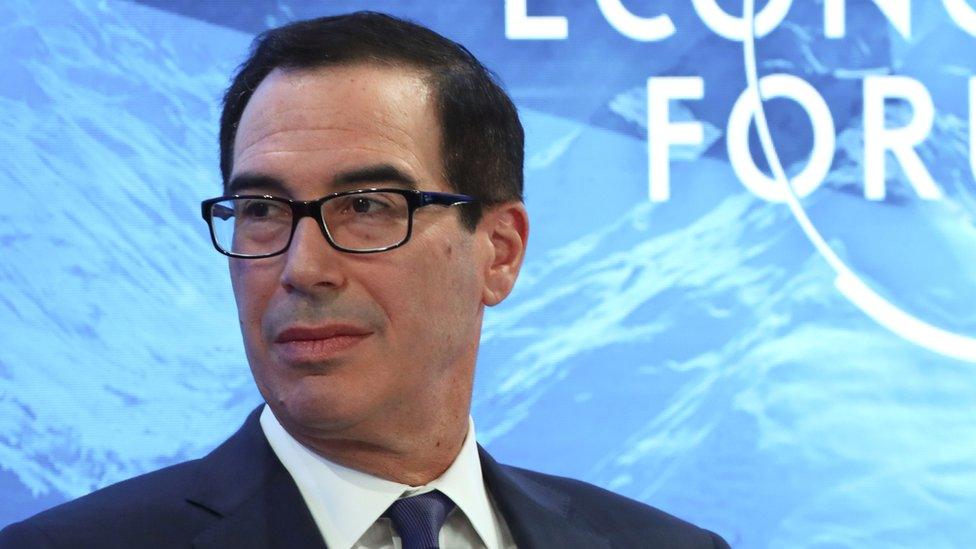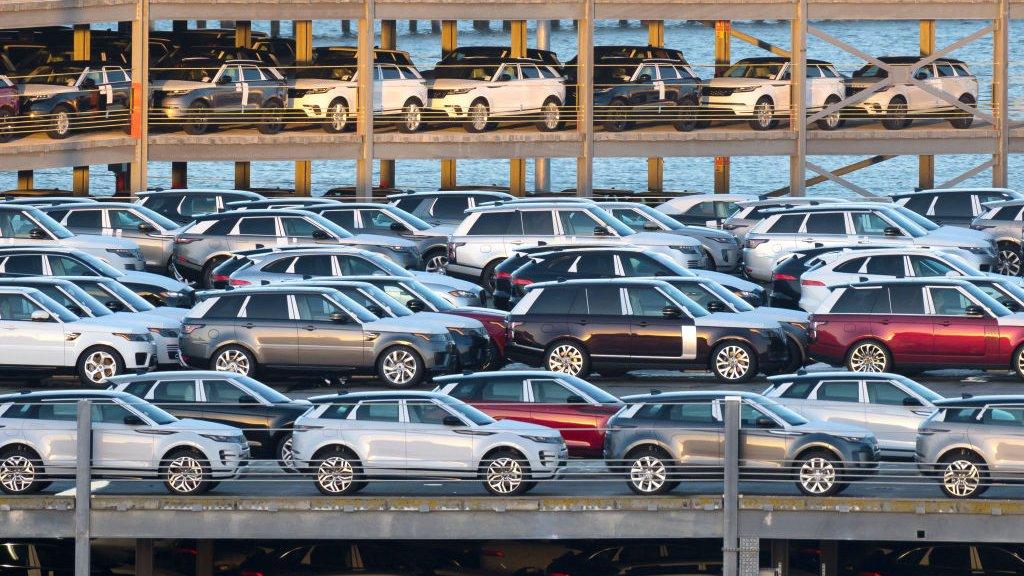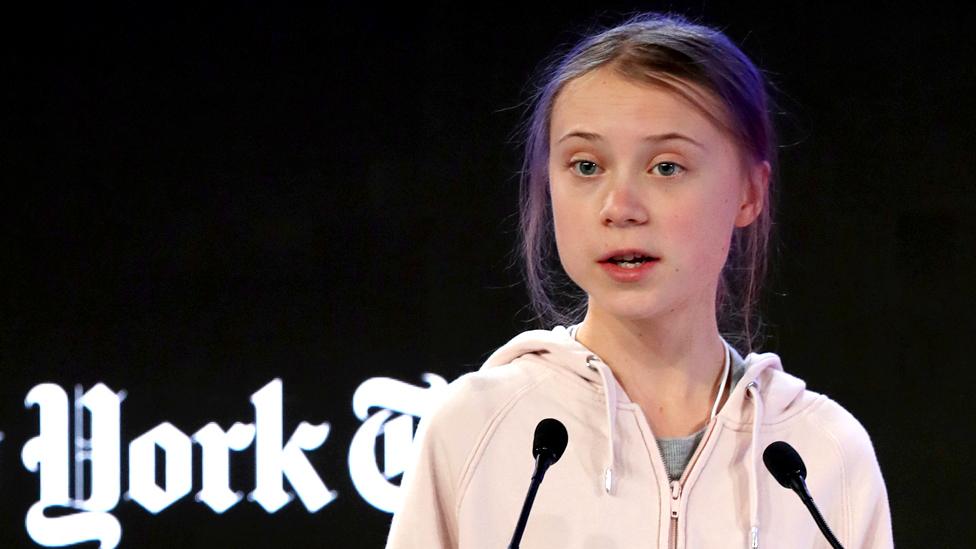Greta Thunberg: US treasury chief attacks activist
- Published

Greta Thunberg should go away and study economics before lecturing investors, the US treasury secretary has said.
Steven Mnuchin said the activist's call for investors to divest fossil fuels showed a lack of understanding about the economy and jobs.
"After she goes and studies economics in college, she can come back and explain that to us," he said at the World Economic Forum in Davos.
On Tuesday, President Donald Trump dismissed the "prophets of doom".
Mr Trump said that campaigners were too pessimistic and should concentrate their fire on countries where emissions are rising. He did not say which countries.
Mr Mnuchin continued the criticism on Thursday. In response to a question about Ms Thunberg's call for fossil fuels to be scrapped, Mr Mnuchin said: "Is she the chief economist?"
He added: "For people who call for divestment, there are significant economic issues - issues with jobs."
The treasury secretary also raised hopes about a US-UK trade deal being signed this year. He said a deal was "an absolute priority" for the president. "We expect to complete that with them [UK] this year," he added.
'Aggressive' timetable
On the subject of the UK's post-Brexit trade negotiations with the US and the EU, Mr Mnuchin said: "What I saw coming out was that they wanted to accomplish both these deals in 2020. That's obviously an aggressive timetable."
He said he could not comment on the EU talks, but he could comment on a UK-US deal.
"That's an absolute priority of President Trump and we expect to complete that with them this year, which we think will be great for them and great for us," he added.


This statement on an accelerated timetable comes on the day when a key Cabinet committee is due to set the strategy for trade negotiations. One of the key debates is whether the UK should launch negotiations with the EU and the US in parallel. Yesterday here in Davos, the Chancellor said that the EU deal would be the first priority.
It seems an extraordinary suggestion that this could be done within a year, when just yesterday the chancellor said that the UK Digital Sales Tax would go ahead and the same member of the Trump team said countries that did this arbitrarily would face retaliatory trade tariffs on their car exports. The Trump team here also mentioned further Cabinet level discussions on the UK deployment of Chinese Huawei technology in its 5G mobile network.
Commerce Secretary Wilbur Ross explained that there "should be far fewer issues" between the UK and the US than there are between either of us and the EU". The economies are similar, he said, and there's already a high degree of coordination in the financial services sector, so it is "much easier mechanically".
When I asked the Trump team if, as was the case a year ago, raising the prices paid to US drugs companies and detaching the UK from EU food standards on pathogens (eg chicken) were still aims, Mr Ross said: "What we think is that drugs should have similar prices wherever they are, but I don't believe we are in any position to tell the UK what to pay."
Elsewhere, the US team were confidently asserting the success of the president's strategy of threatening trade tariffs to force negotiations, and "we are now turning our attention to Europe".
The lesson from elsewhere is that achieving a "deal" as defined by President Trump is always possible, particularly if leaving tariffs at a level five or more times where they were in 2018 can be defined as so. It is difficult to see how so many thorny, politically contentious issues across so much of the UK's trade can be settled so quickly. The will to do something is there, though.

Commerce Secretary Wilbur Ross, speaking at the same event, said he thought a UK-US trade deal ought to be "much easier mechanically" than a UK deal with the EU.
Concerns have been raised in the UK that the NHS could have to pay billions of pounds more for drugs under such a trade deal, as the US will be seeking "full market access" for its companies' products in the UK.
Mr Ross said: "What we think is that drugs should have similar prices wherever they are, but I don't believe we are in any position to tell the UK what to pay for drugs."
On Wednesday, Mr Mnuchin threatened new tariffs on UK carmakers after Chancellor Sajid Javid defied pressure to cancel a new tax on tech firms.
But Mr Javid said the UK would not back down over the tax, which will hit US firms such as Apple, Amazon and Facebook.
- Published22 January 2020

- Published22 January 2020
- Published21 January 2020
